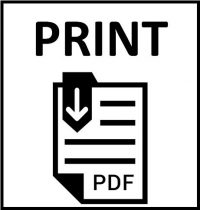Warren Swegal, MD
What is it?
Gastroesophageal reflux disease (GERD) is a condition where stomach contents, especially acid, enter the esophagus and reflux, or backflow, up into the throat and mouth. It often occurs after meals when the stomach is full. Usually symptoms are short lived and mild. However, repetitive irritation can lead to serious damage such as erosion of the lining of the esophagus. Chronic GERD is also associated with an increased risk of difficulty swallowing, dental issues, esophageal bleeding, and Barrett’s esophagus, which can be a precursor to esophageal cancer. For head and neck cancer patients who have received radiation, GERD may also slow wound healing.
How common is it among head and neck cancer patients?
In general, GERD affects about 1 in 5 Americans. Head and Neck cancer survivors may be at increased risk for GERD, depending on the type of treatment received. Furthermore, patients who use a feeding tube may also be impacted by reflux.
What are the signs/symptoms?
The most common symptom of GERD is a burning sensation behind the chest wall which may radiate to the back or throat. This usually occurs after eating and may worsen with lying down. Another common symptom is regurgitation of acidic material into the throat. Other symptoms may include a hoarse voice or a feeling that something is stuck in your throat (globus), or trouble swallowing.
How is it diagnosed?
GERD is often diagnosed based on symptoms of frequent heartburn or acid regurgitation, along with a flexible laryngoscopic exam to rule out other causes of throat symptoms. In patients for whom the diagnosis is not clear or there are concerns for complications, other testing may be needed. One type of additional test is pH monitoring, which tests for the presence of acid in the esophagus. Esophageal manometry is another test that can help diagnose GERD by examining pressure in the esophagus and how it squeezes when you swallow. Patients with prolonged GERD symptoms should undergo an upper gastrointestinal endoscopy, which is a test that involves examining the esophagus with a fiberoptic scope. This procedure can also be used to take biopsies if any area appears suspicious for precancerous changes from long-standing reflux.
How is it treated?
There are multiple methods for treating GERD, from lifestyle changes to medications and even surgical procedures. Below is a list of treatments which can be effective at treating GERD.
- Lifestyle/Diet Modifications
- Avoidance of triggering foods (caffeine, fatty foods, spicy foods, peppermint, and carbonated beverages)
- Weight loss
- Head of bed elevation (about 6 inches)
- Sleeping with a wedge pillow
- Cease eating 4 hours before sleeping
- Cease eating 2 hours before exercise
- Medications
- Antacids (to treat symptoms)
- Coating agents – such as sucralfate
- Acid reducers (histamine blockers and proton pump inhibitors)
- Endoscopic procedures
- Anti-reflux surgery
When should I call my doctor?
You should contact your doctor if you notice regular symptoms of “heart burn” or acidic regurgitation at least once a week. Other reasons to call your doctor are if you notice increased difficulty swallowing or if you feel that something is “stuck in your throat.” If you are currently taking medication for GERD and are still having symptoms, you should contact your doctor to see if there are other medications to try or if you should see a specialist, such as a Gastroenterologist.
https://gi.org/topics/acid-reflux/
https://medlineplus.gov/gerd.html
https://www.webmd.com/heartburn-gerd/guide/reflux-disease-gerd-1#1
